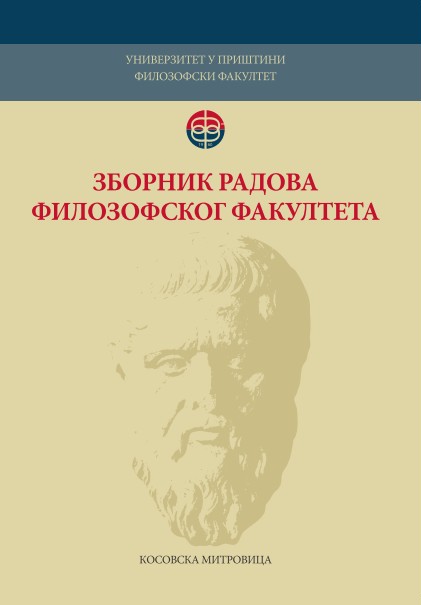Три Јеврејина у роману Гинтера Граса Лимени добош
Three Jews in Günter Grass' novel The Tin Drum
Author(s): Nikolina N. ZobenicaSubject(s): Language and Literature Studies, Studies of Literature, German Literature
Published by: Филозофски факултет, Универзитет у Приштини
Keywords: Jews; petite bourgeoisie; The Tin Drum; World War II
Summary/Abstract: In the novel The Tin Drum (Die Blechtrommel, 1959) Günter Grass depicts three periods of German history: pre-war time, World War II, and post-war time. In all the segments of the novel, there is a Jewish character: in the first part it is the toy dealer, Sigismund Markus; in the second, Mr Feingold; and in the third it is Ferdinand Schmuh. The aim of this paper is to determine similarities and differences among these characters, bearing in mind the changes in socio-political situation, as well as the status of Jews in the world of petite bourgeoisie. Sigismund Markus was in love with Oskar’s mother, and he was loyal to her, even though she was cheating her husband with another man. He warned her of the changing circumstances and he himself decided to get baptised, in order to survive in the new society. However, he was attacked in Crystal Night then he killed himself in order to avoid the destiny which the Nazis have planned for him. The second Jew in the novel is a survivor, Mr Feingold. Although his entire family has been killed in the concentration camp Treblinka, he is eager to help and to protect Maria, Oskar and Kurt. He helps Oskar during the fever and eventually proposes to Maria, but Maria is now ready to leave Gdansk, so Mr Feingold was turned down, just like Markus few years back. Symbolically, the devoted love of the Jews for the Germans and for Gdansk has been refused, as well as hope for a fresh start for the Jews and Germans. While Markus and Feingold show love and respect for women and understanding for Oskar, Schmuh is embittered because Germans have not learnt to mourn and are incapable of crying. He is giving them an opportunity to learn it by serving them onions which makes them shed tears and open their hearts. However, this is only temporary; they do not really change; so Schmuh vents his negative feelings in cursing toilet women and regularly killing twelve sparrows in an afternoon. As he once exaggerated and killed one too many, sparrows attacked his car and he died in the accident. Symbolically, sparrows represent the people and their frivolity, so this killed the last Jew in the novel. Although all three men strive to become a part of the world of petite bourgeoisie, as outsiders they remain on its margin, capable to see the reality behind the borderlines of this narrow milieu and to perceive the broader picture, yet incapable to leave it despite the evident danger. The unrequited love and compassion of the Jews towards the Germans have evolved to anger and bitterness because of their inability to show emotions and mourn over the past. This eventually ruins every chance of establishing mutual love and respect between the Jews and the Germans.
Journal: Зборник радова Филозофског факултета у Приштини
- Issue Year: 47/2017
- Issue No: 2
- Page Range: 75-90
- Page Count: 16
- Language: Serbian

